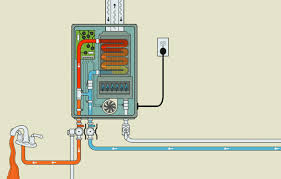


Navigating the world of plumbing can be just as overwhelming as understanding HVAC systems. Whether you’re a homeowner, building manager, or just someone looking to understand the basics, having a solid grasp of essential plumbing terms can simplify your life. To help you better manage your plumbing system, communicate effectively with professionals, and make informed decisions, we’ve created this glossary of key plumbing terms.
We’ve been dedicated to providing exceptional plumbing services since 1982, focusing on quick, reliable, and cost-effective solutions. Whether you need a repair, installation, or advice on maintenance, our team is here to ensure your plumbing system functions smoothly. Contact us today to experience our commitment to excellence!
Schedule Service
Understanding these plumbing terms can significantly improve your ability to manage and maintain your plumbing system effectively. Whether you're dealing with a minor leak or considering a major renovation, having a clear grasp of these key concepts will help you communicate more effectively with professionals and ensure that your system operates smoothly.
For expert plumbing services with a focus on efficiency and reliability, don’t hesitate to reach out to us. With over 30 years of experience, locally owned and operated, we’re here to meet all your plumbing needs. Schedule your service today and experience our commitment to excellence!

A plumbing inspection checks a home's plumbing system. This includes pipes inside and outside, like hose bibs, sinks, and toilets. It's a detailed check that goes beyond a simple home inspection.
Plumbing emergencies include water leaks, burst or damaged pipes, and sagging or discolored ceilings. They also cover low water pressure, overflowing toilets, and clogged drains. Other issues are water heater failure, gas leaks, and sewage backups.
These problems can cause a lot of water damage, health risks, and safety issues. They need quick action by a professional plumber.
Getting a plumbing inspection helps spot problems early. It shows the plumbing's condition to potential buyers. And it stops small issues from becoming big, costly ones.
It's important to fix plumbing problems fast to prevent water damage and mold growth. These issues can harm your home's structure and your family's health. Waiting can lead to expensive repairs later.
There are two main types of plumbing inspections. A visual inspection looks for leaks or problems with water and sewer fittings. A camera inspection uses high-resolution cameras to see inside pipes and the sewer line.
Look out for wet spots on floors or walls, discoloration, and sounds of running water. These signs mean you might have a serious water leak. Ignoring it can cause more damage, mold, and structural problems.
A plumbing inspection checks sinks, toilets, and pipes. It looks at outdoor faucets and the water heater too. Sometimes, it includes a camera inspection of the sewer line.
A burst pipe can spill hundreds of gallons of water quickly, damaging walls, floors, and furniture. It's often caused by freezing, corrosion, or high pressure. You need a professional plumber right away.
A plumbing inspection usually costs about $200. Visual inspections are cheaper, but camera inspections can be up to $500. You might also need to pay for repairs if problems are found.
Sagging or discolored ceilings suggest a hidden water leak. This can lead to structural damage and mold growth. These signs mean water has been leaking behind walls or ceilings for a while.
Experts suggest getting a plumbing inspection every two years. If your home is over 40 years old, consider an annual check to keep the plumbing in good shape.
Low water pressure is a problem if it affects many faucets or fixtures. It can be caused by a failing pressure regulator, clogged pipes, or municipal water issues. This needs quick action.
There's no special prep needed, but knowing about any issues like slow drains or leaks is helpful. Tell the inspector about these problems before the inspection.
Try using a plunger or turning off the water supply to the toilet. But if it keeps overflowing, call an emergency plumber. They can fix it before more damage happens.
Regular inspections catch small problems early, avoiding big, costly repairs. They prevent water damage and ensure your plumbing works well. They can also make your home more appealing to buyers.
A broken water heater is an emergency if it has gas leaks or could cause water damage. Signs include no hot water, strange noises, or leaks. Call a plumber if you notice these.

.jpg)





.png)




